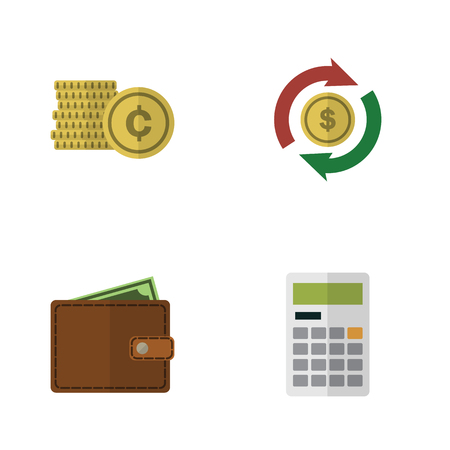Understanding Business Credit and Its Importance
What is Business Credit?
Business credit is a financial profile for your company that shows how trustworthy your business is when it comes to borrowing money or paying bills on time. Just like people have personal credit scores, businesses have their own credit reports and scores. These are tracked by agencies such as Dun & Bradstreet, Experian Business, and Equifax Business.
Business Credit vs. Personal Credit
Many new entrepreneurs in the United States think that business credit and personal credit are the same thing, but they’re actually different in several key ways. Here’s a quick comparison:
| Personal Credit | Business Credit | |
|---|---|---|
| Who it belongs to | You as an individual (using your Social Security Number) | Your business (using your Employer Identification Number or EIN) |
| What it affects | Your ability to get personal loans, credit cards, mortgages | Your ability to get business loans, lines of credit, vendor accounts |
| Reported by | Experian, Equifax, TransUnion | Dun & Bradstreet, Experian Business, Equifax Business |
| Score range | 300-850 (FICO Score) | Varies by agency (Paydex Score: 0-100) |
Why Business Credit Matters for Startups and Entrepreneurs
If you’re starting a new business in the U.S., building strong business credit can open up many opportunities. Here’s why it matters:
- Easier Access to Funding: Lenders are more likely to offer loans or lines of credit with good terms if your business has solid credit.
- Better Trade Terms: Suppliers may give you better payment terms or higher limits if your business has a good credit history.
- Separate Finances: Building business credit helps keep your personal and business finances separate, which is crucial for legal protection and tax purposes.
- Lower Insurance Premiums: Some insurance companies look at business credit when deciding rates for coverage.
- Builds Credibility: Good business credit makes your startup look more professional and trustworthy to partners and investors.
The Bottom Line
Understanding what business credit is—and how it differs from personal credit—is one of the first steps every new entrepreneur should take when starting a company in the United States. In the next sections, we’ll break down how you can start building strong business credit from day one.
2. Setting Up Your Business for Credit Success
Why the Right Foundation Matters
Before you can build strong business credit in the United States, its essential to set up your business the right way. Lenders and vendors want to see that you’re running a legitimate, trustworthy operation. This starts with a few key steps: choosing the right business structure, getting an EIN, and establishing a professional presence.
Step 1: Establish Your Business Entity
First things first: decide on your business structure. In the U.S., most entrepreneurs choose between a sole proprietorship, partnership, LLC (Limited Liability Company), or corporation. For building credit, having an LLC or corporation is usually best because it separates your personal finances from your business.
| Business Structure | Main Benefit | Best For |
|---|---|---|
| Sole Proprietorship | Easy to set up | Solo entrepreneurs with low risk |
| LLC | Protects personal assets, flexible management | Small businesses wanting liability protection |
| Corporation (Inc.) | Strongest legal protection, easier to raise capital | Businesses planning to grow or seek investors |
Step 2: Obtain an Employer Identification Number (EIN)
An EIN is like a Social Security number for your business. It’s required for opening business bank accounts, filing taxes, and applying for credit. You can get one for free from the IRS website—it only takes a few minutes!
Quick Tips:
- You’ll need your EIN on almost all official documents.
- If you’re a sole proprietor with no employees, you can still benefit from having an EIN.
- The process is straightforward—just head to the IRS website.
Step 3: Create a Professional Presence
Lenders and suppliers look for signs that your business is established and credible. Here’s how to boost your professional image:
- Set up a dedicated business phone line and email address.
- Create a business website and list your company in online directories.
- Open a separate business bank account.
- Get a physical address—even a virtual office address works better than using your home address.
- Register with Dun & Bradstreet to get a D-U-N-S Number.
Professional Presence Checklist
| Task | Status |
|---|---|
| Business phone & email set up? | ☐ |
| Website live? | ☐ |
| Business bank account open? | ☐ |
| D-U-N-S Number obtained? | ☐ |
| Physical/virtual office address? | ☐ |
The Bottom Line: Start Strong for Future Success
Laying this groundwork isn’t just about looking good on paper. It’s about showing banks, lenders, and partners that you take your business seriously—making it much easier to qualify for credit as you grow.

3. Building a Strong Business Credit Profile
Open a Business Bank Account
One of the first steps to building business credit in the United States is to open a business bank account. This separates your personal finances from your company’s finances, making it easier to track expenses and build a financial history for your business. Most U.S. banks require your Employer Identification Number (EIN), formation documents, and personal identification to get started. Choose a reputable bank that offers online banking, low fees, and good customer support.
Popular U.S. Banks for Small Businesses
| Bank Name | Main Features |
|---|---|
| Chase | Wide branch network, strong online tools, business credit cards |
| Bank of America | Easy integration with accounting software, rewards programs |
| Wells Fargo | Customizable accounts, strong small business resources |
| Capital One | No monthly fees options, simple account management |
Work with Vendors Who Report to Credit Bureaus
Not every vendor or supplier you work with will report your payment history to business credit bureaus. To grow your business credit profile, seek out vendors who do. These positive payment reports help you build credibility and score points on your credit file. Ask potential suppliers if they report to agencies like Dun & Bradstreet, Experian Business, or Equifax Business before establishing a trade line.
Tips for Working with Reporting Vendors
- Always pay bills on time or early—late payments hurt your credit profile.
- Start with net-30 or net-60 accounts; these give you 30 or 60 days to pay.
- Request confirmation that your account will be reported each month.
- Maintain open communication if you anticipate any payment delays.
Stay Compliant with U.S. Credit Reporting Agencies
Your business credit profile is managed by major agencies such as Dun & Bradstreet, Experian Business, and Equifax Business. To stay compliant:
- Register Your Business: Make sure your company is registered correctly in agency databases. Get a D-U-N-S Number from Dun & Bradstreet if you don’t already have one.
- Check Your Reports Regularly: Review your reports for errors or outdated information at least twice a year.
- Update Information Promptly: If you move or change phone numbers, update all records immediately to avoid confusion.
- Avoid Excessive Credit Applications: Too many inquiries can lower your score—apply only when necessary.
Main U.S. Business Credit Bureaus Overview
| Bureau Name | Main Role | How to Contact/Register |
|---|---|---|
| Dun & Bradstreet (D&B) | D-U-N-S Number provider; tracks trade payments and public records. | dnb.com |
| Experian Business | Sells credit reports to lenders; tracks payment trends and bankruptcies. | experian.com/business/ |
| Equifax Business | Covers loans, lines of credit, leases; monitors overall risk factors. | equifax.com/business/ |
By focusing on these core actions—opening the right bank accounts, working with reporting vendors, and staying compliant with U.S. credit agencies—you’ll set a solid foundation for strong business credit in the United States.
4. Leveraging Credit to Grow Your Business
How to Use Business Credit Cards Wisely
Business credit cards are a popular tool for new entrepreneurs in the U.S. They offer flexibility, rewards, and a way to separate personal and business expenses. However, it’s important to use them responsibly:
- Only spend what you can pay off monthly. This helps you avoid interest charges and keeps your credit score healthy.
- Pay on time every month. Late payments hurt your business credit profile.
- Track your expenses. Many cards offer expense management tools that make accounting easier at tax time.
- Take advantage of rewards programs. Some cards offer cash back or travel points—use these perks to reinvest in your business.
Securing Lines of Credit
A business line of credit gives you access to funds up to a set limit, letting you borrow only what you need and pay interest just on the amount used. It’s great for managing cash flow or covering unexpected expenses. Here’s how different financing options compare:
| Financing Option | Best For | Main Benefits | Things to Watch Out For |
|---|---|---|---|
| Business Credit Card | Everyday purchases, short-term needs | Rewards, easy tracking, builds credit history | High interest rates if unpaid balances carry over |
| Line of Credit | Ongoing working capital, unexpected costs | Flexible access, pay interest only on what’s used | May require collateral or higher credit score |
| SBA Loan | Larger investments, equipment, expansion | Lower rates, longer terms, government-backed security | Long approval process, strict requirements |
| Term Loan | Specific one-time expenses (e.g., buying inventory) | Lump sum funding, predictable payments | Total interest cost can be high over time |
Accessing Financing to Fuel Growth
If you’re planning to expand—maybe by hiring staff, opening a new location, or launching a new product—you’ll likely need more funding. Here are some tips for getting approved:
- Keep your business and personal finances separate.
- Maintain good payment history with vendors and lenders.
- Have up-to-date financial statements ready.
- Create a solid business plan that shows how you’ll use the funds and repay them.
- Cultivate relationships with local banks or community lenders.
The Bottom Line on Responsible Borrowing
Your goal is to use business credit as a tool—not a crutch. Borrow only what your company can realistically repay. Smart credit management not only fuels growth but also sets you up for better financing opportunities in the future. Remember: every payment you make on time is an investment in your company’s reputation and long-term success.
5. Maintaining and Monitoring Your Business Credit
Why Monitoring Your Business Credit Matters
Once you’ve established business credit, it’s essential to keep a close eye on your credit profile. Regular monitoring helps you spot any errors, detect fraud early, and understand how lenders see your business. Staying proactive with your credit reports can make the difference between getting approved for financing or facing costly setbacks.
How to Check Your Business Credit Reports
There are several major business credit bureaus in the United States, including Dun & Bradstreet, Experian Business, and Equifax Business. Each bureau collects data from different sources, so your reports may vary. It’s smart to check all three regularly to get a complete picture of your company’s financial reputation.
| Credit Bureau | How to Access | What Youll See |
|---|---|---|
| Dun & Bradstreet (D&B) | Request a free D-U-N-S Number and use their online portal | PAYDEX Score, payment history, public filings |
| Experian Business | Sign up for Experians business credit services | Business Credit Score, tradeline details, inquiries |
| Equifax Business | Create an account on Equifax’s Small Business portal | Credit risk scores, payment trends, legal filings |
Tips for Monitoring Your Business Credit Reports
- Set calendar reminders: Check your reports at least once every quarter.
- Sign up for alerts: Many bureaus offer monitoring services that notify you of changes to your credit profile.
- Review all sections: Look over payment histories, public records, and personal information for accuracy.
- Keep documentation: Save receipts and correspondence related to your business accounts in case you need to dispute something.
How to Dispute Inaccuracies on Your Report
If you find mistakes—like late payments that never happened or accounts that don’t belong to you—it’s important to dispute them quickly. Here’s a step-by-step guide:
- Gather evidence: Collect invoices, bank statements, or emails that support your claim.
- Contact the bureau: Use their official dispute process, usually available online or by mail.
- Submit your documentation: Clearly explain the error and attach copies of your evidence.
- Follow up: Most bureaus will investigate within 30 days. Check back to confirm the correction has been made.
A Simple Dispute Checklist:
- Error found? ✔️
- Evidence collected? ✔️
- Bureau contacted? ✔️
- Status followed up? ✔️
Safeguarding Your Company’s Financial Reputation Long-Term
- Pays bills on time: Set up automatic payments or reminders so you never miss due dates.
- Avoid maxing out credit lines: Keep balances low relative to your limits—ideally under 30% utilization.
- Limit hard inquiries: Only apply for new credit when necessary; too many applications can lower your score.
- Keep information current: Update your address and contact details with all creditors and bureaus as soon as they change.
- Create internal controls: Limit who in your company can open new accounts or access sensitive financial information.
Your Roadmap to Strong Business Credit Health:
| Action Item | Description |
|---|---|
| Monitor Reports Regularly | Catches errors and fraud early before they impact financing opportunities. |
| Pays Bills Promptly | The best way to build a positive payment history over time. |
| Keeps Balances Low | Lowers risk profile for lenders and improves credit scores. |
| Takes Quick Action on Errors | Cleans up inaccuracies that could damage your financial reputation. |
This ongoing attention helps ensure that your business is always ready for new opportunities—and protects what you’ve worked hard to build.


